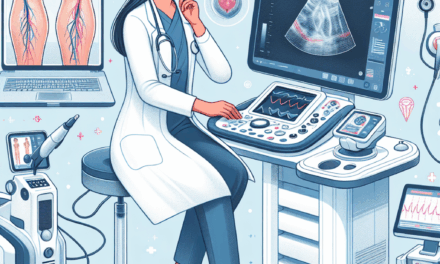Navigating Wisdom Teeth: Preventive Dentistry Insights on Monitoring and Removal
Wisdom teeth, or third molars, are often a source of concern for many individuals as they approach their late teens and early twenties. These teeth can lead to various dental issues, including crowding, impaction, and infection. Understanding the importance of monitoring and, if necessary, removing wisdom teeth is crucial for maintaining oral health. This article delves into the complexities surrounding wisdom teeth, offering insights from preventive dentistry to help navigate this common dental challenge.
Understanding Wisdom Teeth: Anatomy and Function
Wisdom teeth are the last set of molars that typically emerge between the ages of 17 and 25. They are located at the back of the mouth, one in each quadrant. While they were once essential for our ancestors, who had a diet that required more chewing power, their necessity has diminished over time due to changes in diet and jaw size.
From an anatomical perspective, wisdom teeth can vary significantly in size, shape, and position. Some individuals may have all four wisdom teeth, while others may have fewer or none at all. The presence of these teeth can lead to several dental issues, particularly when there is insufficient space in the jaw for them to emerge properly.
- Evolutionary Perspective: The human jaw has evolved to be smaller, making it less accommodating for wisdom teeth.
- Functionality: In the past, wisdom teeth helped in grinding down plant tissue, but this function is largely obsolete today.
- Variability: Some people may have congenitally missing wisdom teeth, while others may have extra molars.
Understanding the anatomy and function of wisdom teeth is essential for recognizing potential problems. For instance, when wisdom teeth do not have enough space to emerge, they can become impacted, leading to pain, swelling, and infection. Regular dental check-ups can help monitor the development of these teeth and identify any issues early on.
Common Issues Associated with Wisdom Teeth
Wisdom teeth can lead to a variety of dental problems, which can significantly impact an individual’s oral health. Some of the most common issues include:
- Impaction: This occurs when wisdom teeth do not fully emerge from the gums, often leading to pain and infection.
- Crowding: Wisdom teeth can push against adjacent teeth, causing misalignment and crowding.
- Cysts and Tumors: Impacted wisdom teeth can lead to the formation of cysts or tumors, which may damage the jawbone and surrounding teeth.
- Gum Disease: Partially erupted wisdom teeth can create pockets where bacteria can thrive, leading to gum disease.
- Tooth Decay: Wisdom teeth are located at the back of the mouth, making them difficult to clean and more susceptible to decay.
Each of these issues can lead to significant discomfort and may require intervention. For example, impacted wisdom teeth can cause severe pain and swelling, often necessitating surgical removal. Additionally, the risk of developing gum disease or tooth decay increases with the presence of wisdom teeth, particularly if they are not monitored regularly.
Statistics indicate that approximately 85% of individuals will require wisdom teeth removal at some point in their lives. This highlights the importance of preventive dentistry in monitoring the development of these teeth and addressing any issues before they escalate.
Preventive Dentistry: Monitoring Wisdom Teeth
Preventive dentistry plays a crucial role in managing wisdom teeth. Regular dental check-ups and X-rays are essential for monitoring the development of these teeth and identifying potential issues early on. Here are some key aspects of preventive dentistry concerning wisdom teeth:
- Regular Dental Visits: Routine check-ups allow dentists to assess the position and health of wisdom teeth.
- X-rays: Dental X-rays provide a clear view of the position of wisdom teeth and can help identify impaction or other issues.
- Patient Education: Dentists can educate patients about the signs and symptoms of wisdom tooth problems, encouraging them to seek help early.
- Risk Assessment: Dentists can evaluate an individual’s risk for wisdom tooth complications based on their dental history and current oral health.
- Personalized Care Plans: Based on monitoring results, dentists can create tailored care plans that may include preventive measures or surgical options.
Regular monitoring is particularly important for younger patients, as early intervention can prevent more severe complications later on. For instance, if a dentist identifies that a wisdom tooth is likely to become impacted, they may recommend removal before it causes pain or infection. This proactive approach can save patients from more extensive treatments and complications down the line.
When to Consider Wisdom Teeth Removal
Deciding whether to remove wisdom teeth is a significant decision that should be made in consultation with a dental professional. Several factors can influence this decision, including:
- Age: Younger patients tend to recover more quickly from surgery, making early removal a common recommendation.
- Position of the Teeth: If wisdom teeth are impacted or positioned at an angle, removal may be necessary to prevent complications.
- Symptoms: Persistent pain, swelling, or infection are strong indicators that removal may be required.
- Dental History: A history of dental issues, such as gum disease or tooth decay, may warrant the removal of wisdom teeth.
- Orthodontic Considerations: Patients undergoing orthodontic treatment may need to have their wisdom teeth removed to prevent crowding.
For example, a case study involving a 20-year-old patient revealed that their wisdom teeth were impacted and causing recurrent infections. After thorough evaluation, the dentist recommended removal to prevent further complications. The patient underwent the procedure and experienced significant relief from pain and swelling, highlighting the importance of timely intervention.
Ultimately, the decision to remove wisdom teeth should be based on a comprehensive evaluation by a dental professional, taking into account the individual’s unique circumstances and oral health needs.
Post-Operative Care and Recovery
After wisdom teeth removal, proper post-operative care is essential for a smooth recovery. Patients should be informed about what to expect and how to care for themselves during the healing process. Key aspects of post-operative care include:
- Pain Management: Dentists often prescribe pain relievers or recommend over-the-counter medications to manage discomfort.
- Dietary Restrictions: Patients should stick to soft foods and avoid hard, crunchy, or spicy foods that could irritate the surgical site.
- Oral Hygiene: Maintaining oral hygiene is crucial, but patients should avoid brushing the surgical area for the first few days.
- Rest: Adequate rest is essential for recovery; patients should avoid strenuous activities for a few days post-surgery.
- Follow-Up Appointments: Regular follow-up visits allow dentists to monitor healing and address any complications that may arise.
For instance, a patient who underwent wisdom teeth removal reported following their dentist’s post-operative care instructions diligently. They experienced minimal swelling and discomfort, allowing them to return to their normal activities within a week. This case underscores the importance of adhering to post-operative care guidelines for a successful recovery.
Conclusion: The Importance of Preventive Dentistry in Managing Wisdom Teeth
Navigating the complexities of wisdom teeth requires a proactive approach rooted in preventive dentistry. Regular monitoring, timely intervention, and informed decision-making are essential for maintaining oral health and preventing complications associated with wisdom teeth. By understanding the anatomy and potential issues related to wisdom teeth, individuals can work closely with their dental professionals to make informed choices about monitoring and removal.
Key takeaways from this article include:
- Wisdom teeth can lead to various dental issues, including impaction, crowding, and gum disease.
- Preventive dentistry plays a crucial role in monitoring the development of wisdom teeth and identifying potential problems early on.
- Deciding to remove wisdom teeth should be based on a comprehensive evaluation by a dental professional.
- Proper post-operative care is essential for a smooth recovery after wisdom teeth removal.
- Education and awareness about wisdom teeth can empower individuals to take charge of their oral health.
In conclusion, understanding the dynamics of wisdom teeth and the role of preventive dentistry can significantly impact an individual’s oral health journey. By staying informed and proactive, individuals can navigate the challenges associated with wisdom teeth effectively, ensuring a healthier smile for years to come.





